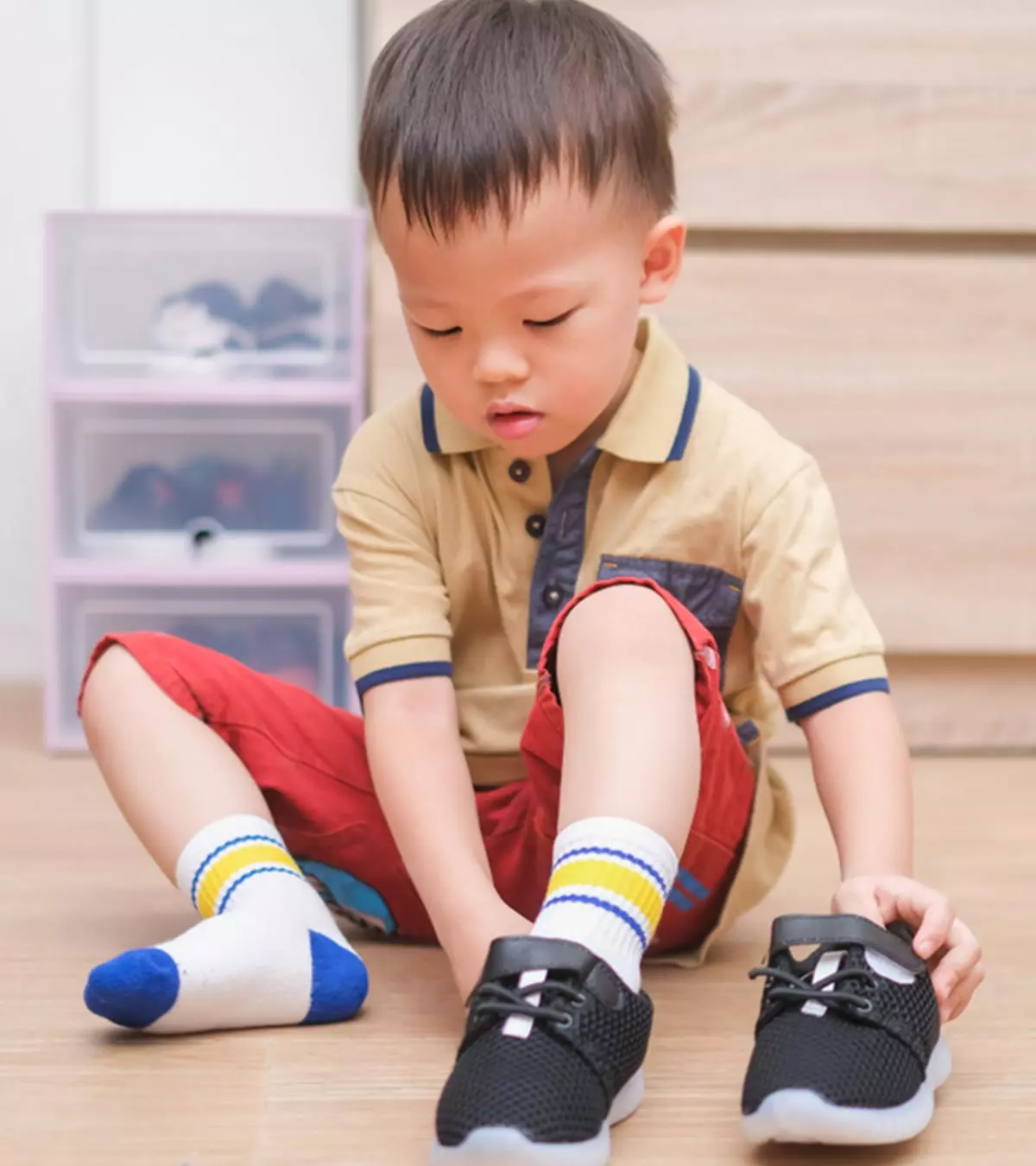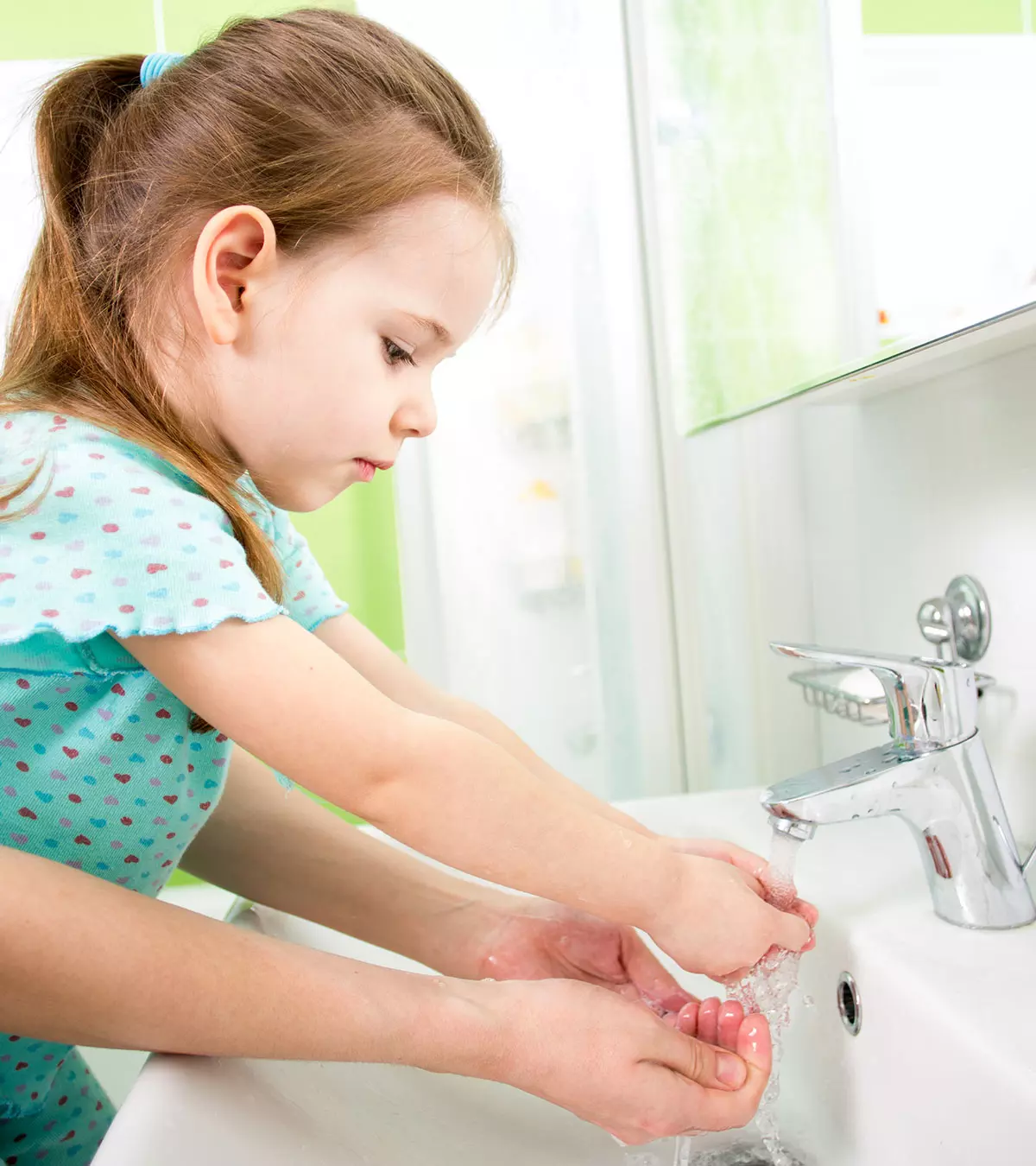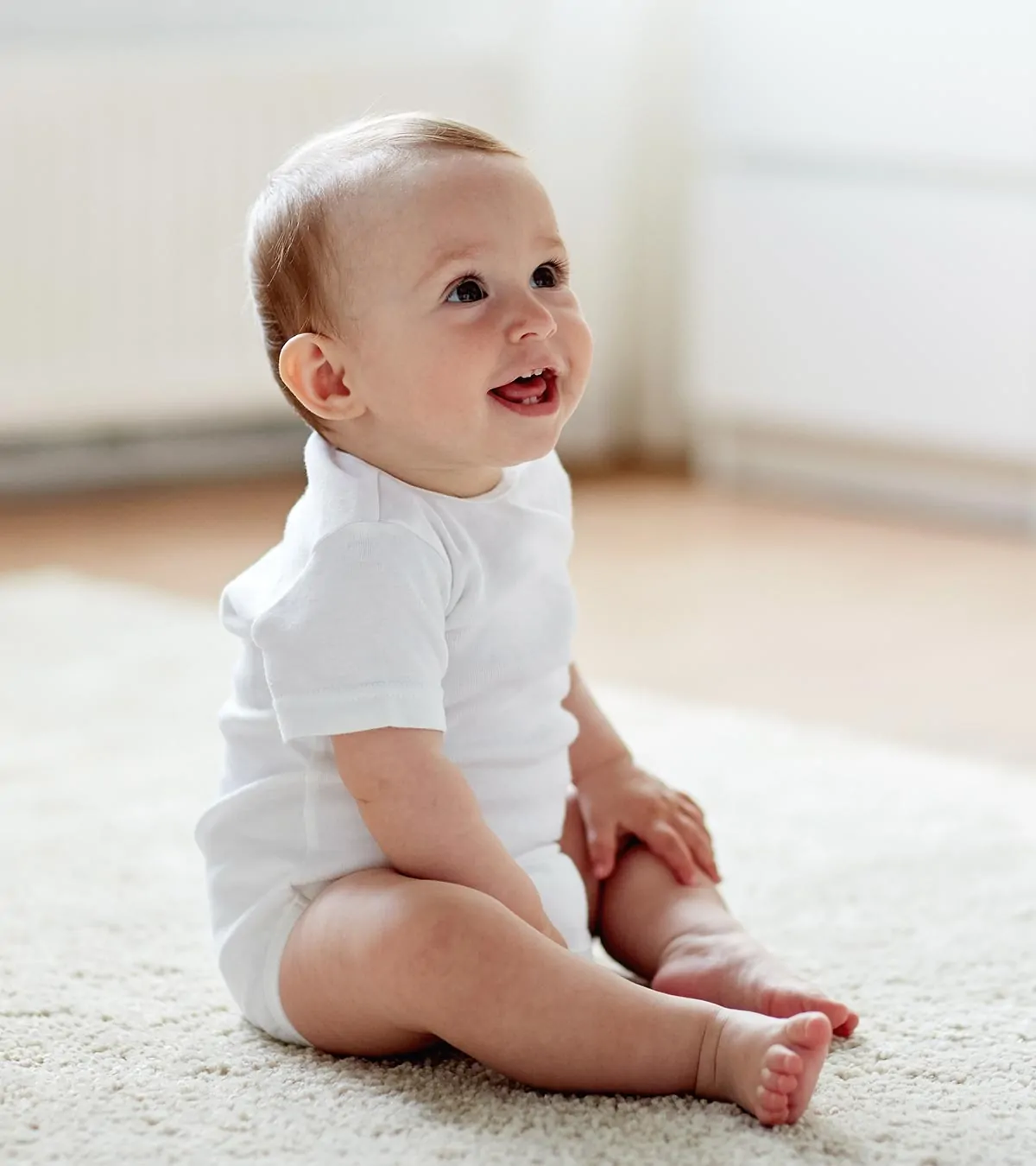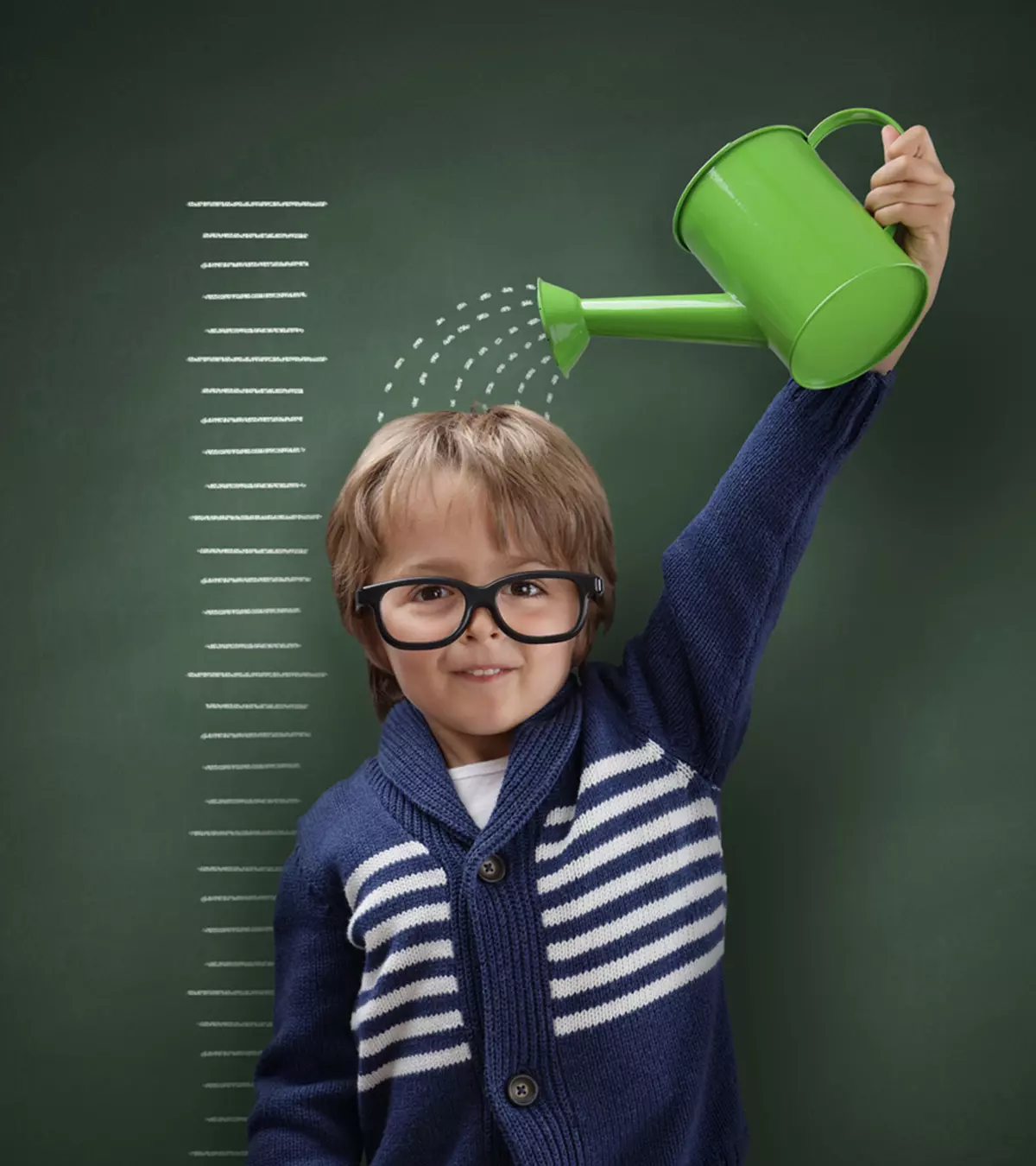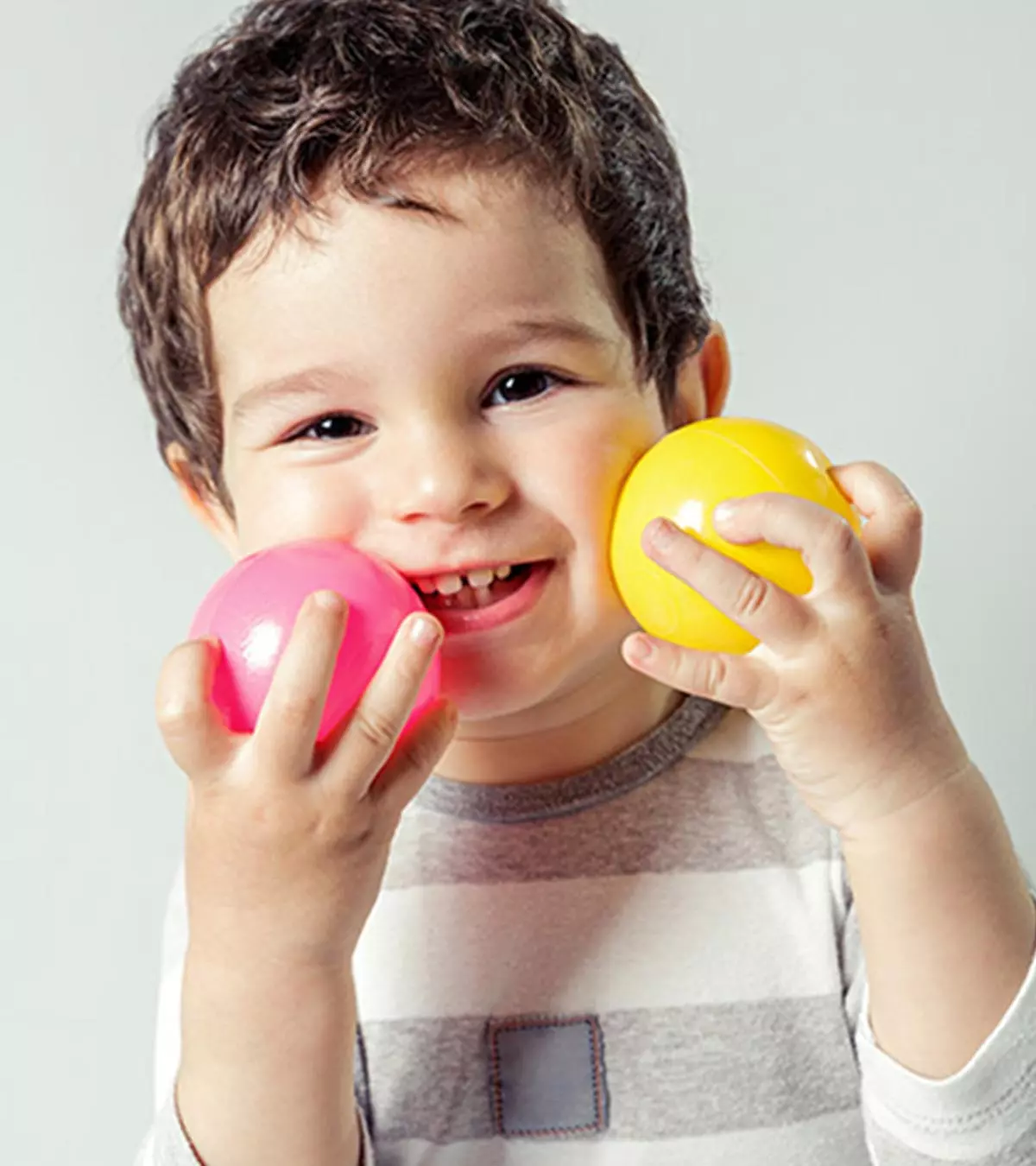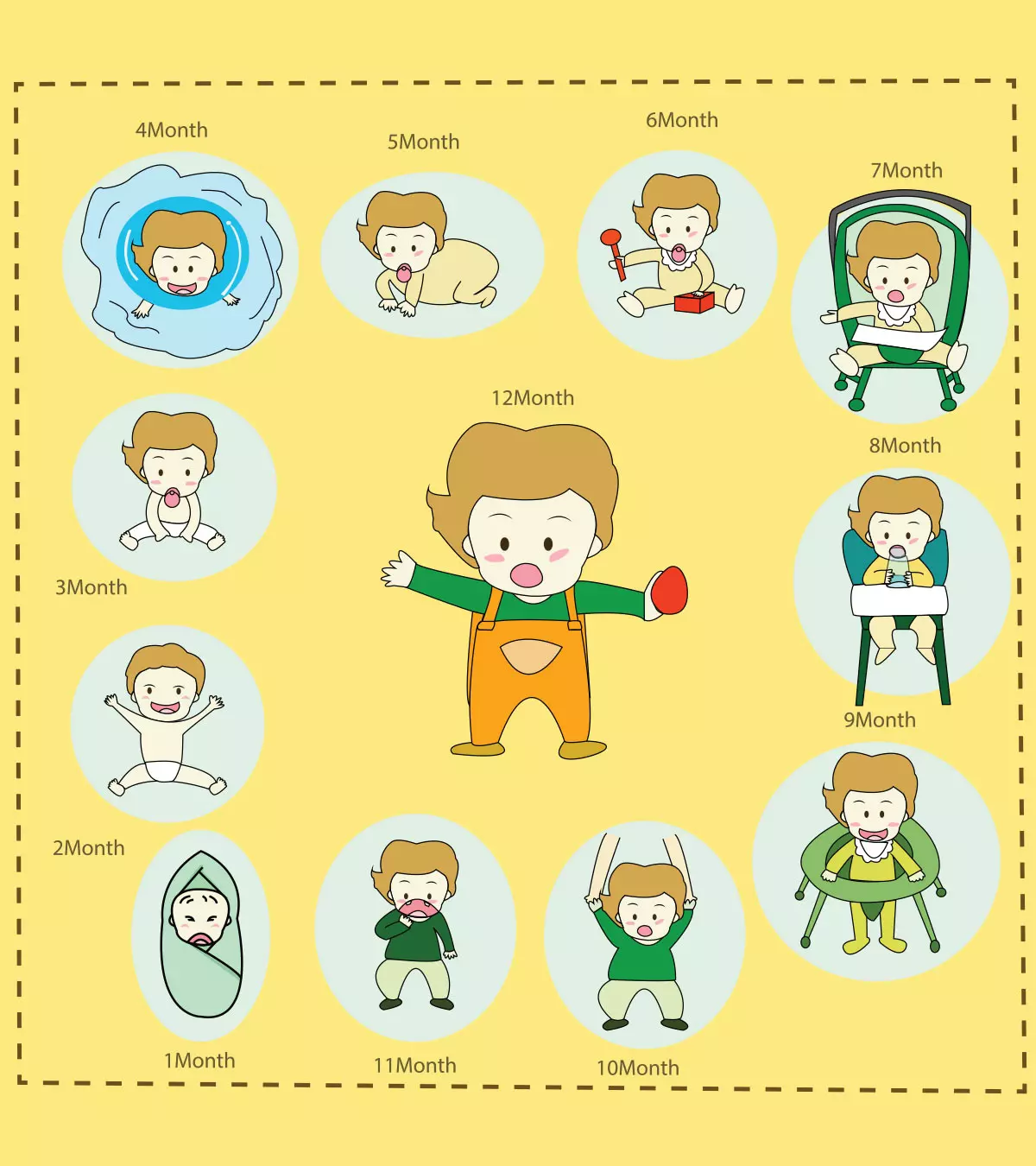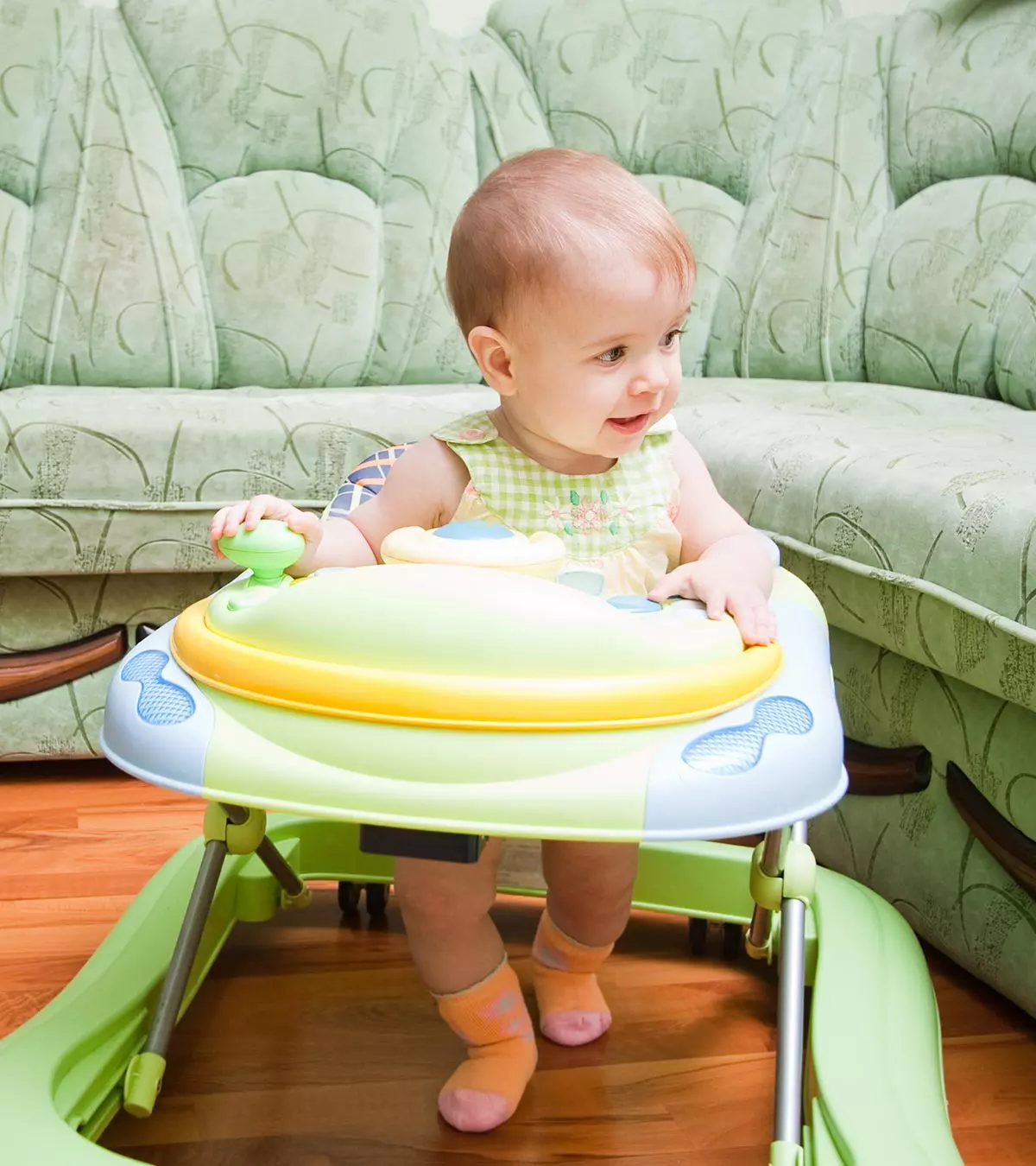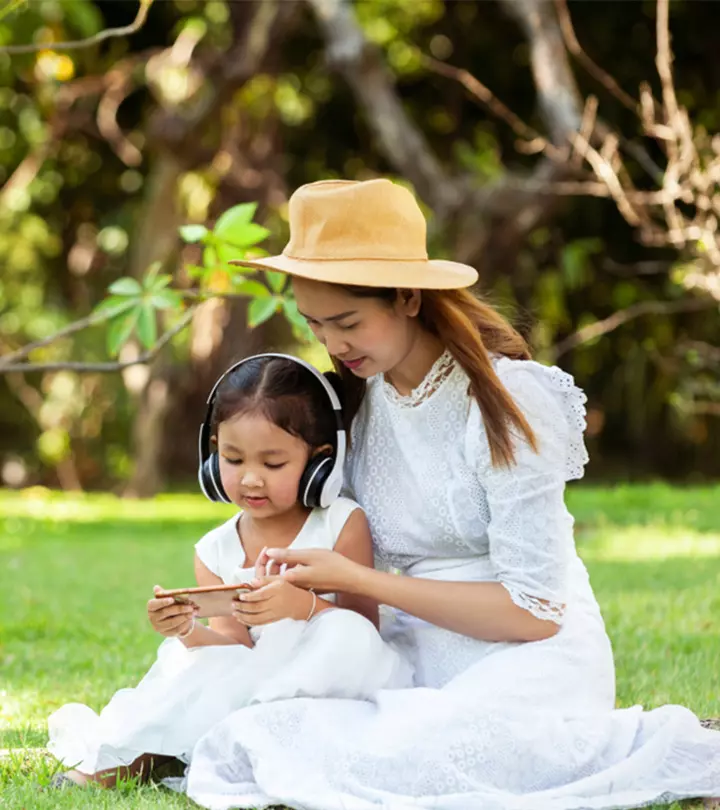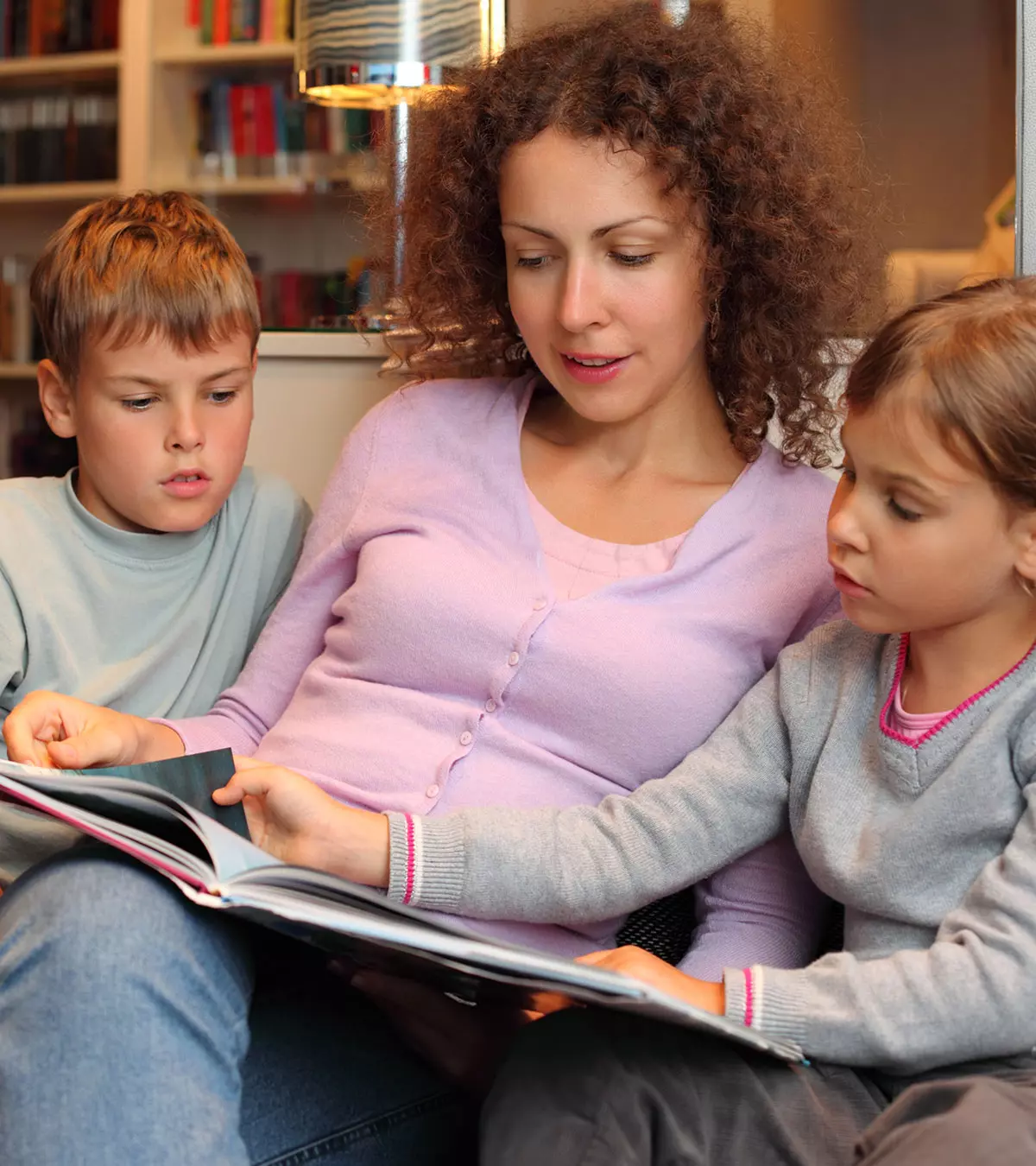
Image: Shutterstock
Studies indicate that environmental factors play a vital role in a child’s overall development, including cognitive, emotional, and social growth. Factors at both the family and community levels shape a child’s character. Parents are a child’s first teachers, and young minds learn by example. So if you have frequent arguments with your spouse or stay in a neighborhood where loud brawls disturb the ambiance of your place, it may adversely affect your child’s learning and behavior (1). It is important to note that our parenting style can significantly influence children’s cognitive development.
Keep reading this post to learn more about the various environmental factors that may impact your child’s development and how you can help provide a positive atmosphere that is conducive to your child’s growth.
Key Pointers
- The emotional bond between parents and children is crucial to a child’s development and personality.
- The relationship between parents may affect a child’s emotional growth and mental health.
- The family’s financial condition and emotional connection impact various aspects of a child’s childhood experience.
- Social media and television can be used constructively to streamline educative and age-appropriate information.
- A positive and relaxed environment at home can aid a child’s concentration and learning.
Environmental Factors Affecting Child Development
What you teach your child will not restrict their overall development. The environment your child grows up in and the things they see around them will also influence their early learning. Sometimes, cultural norms such as parenting practices, educational values, gender roles, and religious beliefs also help in shaping a child’s experiences and their value system. It is especially important in the formative years of life when the child is receptive to external stimuli and it affects the child to great extent. It could be the environment at home, at school, at daycare, in the neighborhood, and any other areas where your child spends a considerable amount of time (1).
Here are environmental factors that affect your child’s development:
1. Emotional bond with your child
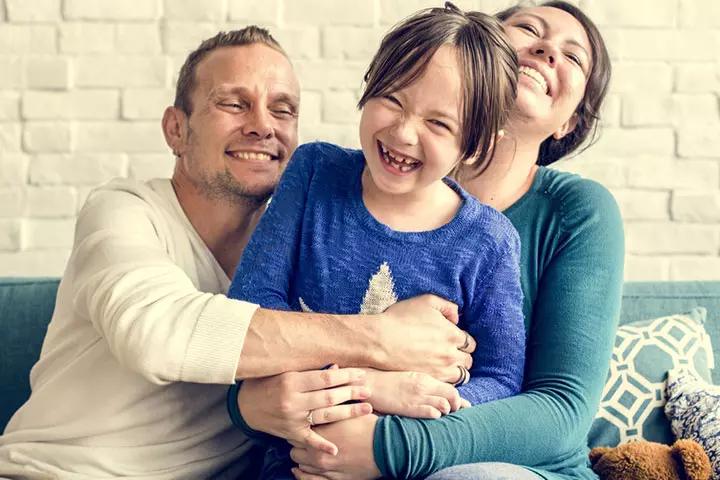
Home is the first environment of the child. Since their birth, the emotional environment they see and feel around them will shape their personality. The bond your child shares with you will help them understand and learn how to express their love and fears, which is essential to promote healthy emotional development in children.
- It will teach them how to interact with those who are close to them. A sentimental connection with you during the early years will help them feel confident and secure.
- A stable and loving relationship will nurture your child’s personality. They will feel important and valued.
- Make sure you spend enough time showing them that you love them. Hold their hands and be there for them always (2).
- For working mothers, it is important to give quality time to the child (3).
- You may plan to give short time slots of individual attention to the child spaced well throughout the day.
- Reassuring your child and being there for them when they need you can help build a strong relationship and foster a sense of safety and security for your child.
2. Your equation with your partner
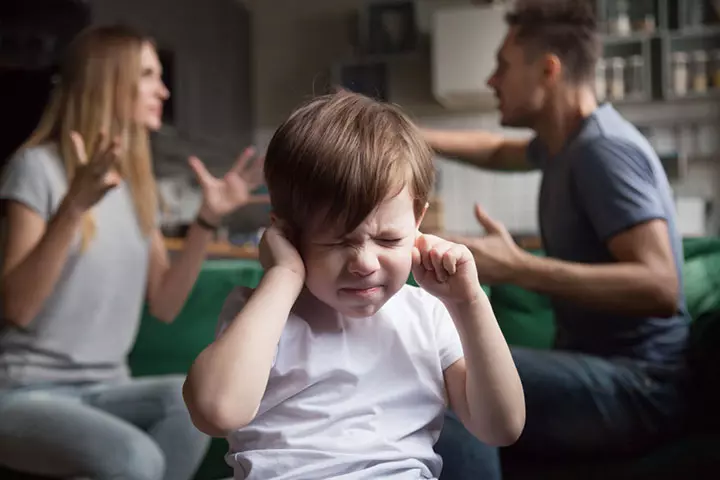
- The relationship you share with your spouse will affect your child’s developmental and emotional growth (4). Your family dynamics play a significant role in your child’s overall well-being and improving their mental health.
Pradeeta, a blogger, narrates how her parents’ fights terrified her as a kid. She says, “It’s late in the night or early morning, I am not sure, but I can hear an argument erupting in the living room. The same words make their way into my ears as I hear sobs. And a shrill piercing voice of my mother. I hear my father say something utterly outrageous as I hide under my blanket, hoping to sleep this same routine away.” Not only did this affect her as a child, but in the long run, she and her partner engaged in the same irrational behavior (i).
- Your spouse and you are perhaps the two people who will be closest to your children. You will also be the first couple your child will ever know. That’s why your and your partner’s actions and demeanor will have a direct impact on your children. This is a reminder that the influence of parents on children is paramount.
- How you interact with each other, and the love and respect you share as a couple will help your child learn about valuing another person.
- They may also learn about proper work-life balance by observing you.
- A little display of affection is okay and required in front of your child. Small but important gestures, such as holding hands and hugging will show your child that these are natural ways to express love.
3. Your family as a whole

- Family time especially with joint family is crucial to nurture the child and their developing brain in the formative sensitive years of life.
- The financial condition of the family in addition to the emotional connection will affect various aspects of their childhood experience (1) (5). In some cases, your child may notice your buying and spending habits and compare them with others they know, like their friends and friends’ parents.
- It is important you speak to your child about these issues while having personal time, knowing their perceptions, and explaining them.
- Community support can help in providing resources, guidance, and social connections that can benefit both parents and children.
 Point to consider
Point to consider4. Social media and television

- When every possible thing is on a virtual platform, it is not unusual to have exponentially increased screen times.
- Children are like absorptive sponges and parents are their role models early in life.
- Make sure you are not making them believe that smartphones or laptops are superior to the offline world.
- You can use this media constructively for recommended periods only to streamline the information that is educative and kid-friendly, age-appropriate during their screen time if cannot avoid completely.
However, while allowing your children to use social media responsibly, you should let them know they will be digitally grounded if it is misused.
A survey conducted on US adults reveals that parents adopt various strategies for digital discipline. About 83% of parents restrict their children’s screen time, while 80% resort to confiscating their child’s phone as punishment. Additionally, approximately 49% of parents check their child’s call logs and text messages to stay informed about their activities. The graph below shares more information.

Percentage of methods used by US parents to digitally ground their child
Source: Roughly eight-in-ten or more parents limit when and how long their child can use screens or digitally ‘ground’ their child; Pew Research CenterHow To Ensure A Proper Environment For Child Development?
Here are some ways to ensure a healthy environment for children:
1. Create a learning environment
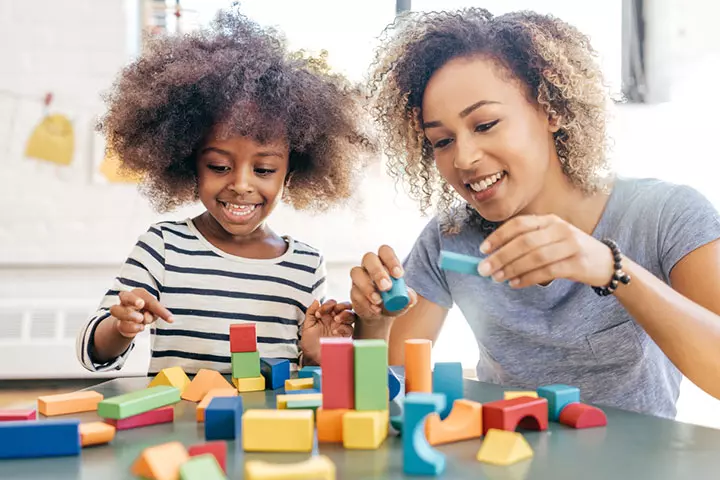
You are your child’s first teacher, so it is crucial you create an environment that stimulates and aids their skill development (6). A positive and relaxed environment at home will help your child concentrate on studies and learn better (8). You and your spouse should create opportunities that allow your child to explore, even within the home. Encourage different activities that cater to various interests, such as art, science, and physical exercise. Your children may also benefit from having safe outdoor green spaces where they can engage in physical activities. Encourage your child to ask questions and look for solutions. It will help them gain more knowledge.
2. Avoid harsh discipline
Teach your child the proper behavior instead of physically punishing them. However, if your threat is reasonable to encourage good behavior, carry them out (9).
3. Ensure consistency
Consistency by setting routines to bathe, sleep, etc., can make a child feel secure. This will also initiate a sense of discipline and self-control (10).
4. Focus on health and nutrition
Adequate nutrition is essential for the healthy growth of children (11). Young children should regularly be fed nutrient-rich foods to achieve their full developmental potential (12).
Parents should focus on creating a healthy and safe environment for their children to grow and develop.
Frequently Asked Questions
1. How does living in an unstable home environment affect a child’s development?
Living in an unstable environment, be it financial instability, residential instability, family instability, or employment instability, can have a negative impact on a child’s development (13). Children who grow up in unstable homes may experience chronic stress, which can lead to a range of health problems such as anxiety, depression, and behavioral problems. They may also have difficulties forming healthy relationships and may affect their academic performance.
2. How does exposure to violence affect a child’s mental health?
Exposure to violence can significantly impact the emotional, psychological, and physical development in children (14). Children who are exposed to violence may experience symptoms of anxiety, depression, and post-traumatic stress disorder (PTSD). They may also have difficulties with academic performance and social relationships.
3. How do parenting styles affect a child’s social and cognitive development?
Parenting styles can have a significant impact on a child’s social and cognitive development. Authoritative parenting, with parental demandingness, characterized by high levels of warmth and responsiveness combined with appropriate levels of control and discipline, has been associated with positive outcomes in children such as better social skills, higher academic achievement, and better mental health. In contrast, coercive and permissive parenting styles have been associated with negative outcomes such as lower academic achievement and higher levels of behavioral problems (15) (16).
4. What environments best support children’s development at different stages?
Children need specific environmental support in each stage of their growth. Infants thrive in a nurturing, secure home, while toddlers benefit from spaces that encourage exploration and playful learning. For school-age children, settings that offer structured learning and social opportunities are crucial.
Emotional bonds between children and parents are the primary environmental factors affecting a child’s development. Children absorb everything around them like a sponge that begins to reflect in their personality and behavior. A child’s cognitive development can be influenced by various factors, including their family environment, social media, or peer groups. Regardless of a family’s socioeconomic status, involving children in family discussions can help in fostering healthy relationships. It is also important to give attention and time to children, especially in joint families. This way, children also learn to share their fears and earn respect, love, and care from their family members.
Infographic: Impact Of Positive Environment On Children’s Development
Environmental factors include both the physical environment in which children live and the social and cultural influences they experience. The physical, emotional, and cognitive development of children is significantly influenced by environmental variables. So, look through the infographic below to learn about the benefits the positive environment creates for children. Illustration: Momjunction Design Team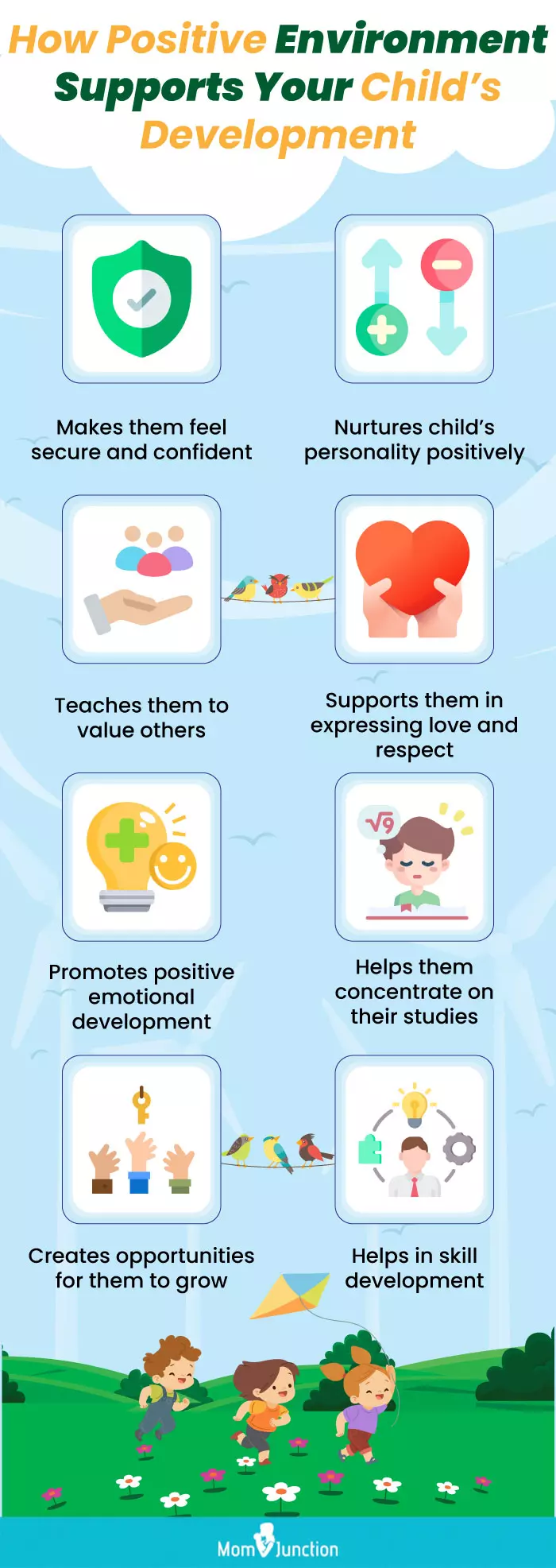
Illustration: How Does The Environment Influence A Child’s Growth And Development?

Image: Stable Diffusion/MomJunction Design Team
Personal Experience: Source
MomJunction articles include first-hand experiences to provide you with better insights through real-life narratives. Here are the sources of personal accounts referenced in this article.
i. When your parents fight…again.https://yourdost.com/blog/2016/01/when-your-parents-fight-again.html?q=/blog/2016/01/when-your-parents-fight-again.html
References
- Children’s Health The Nation’s Wealth: Assessing and Improving Child Health.
https://www.ncbi.nlm.nih.gov/books/NBK92200/ - Parent-Child Relationship – Why it’s Important.
https://www.parentingfocus.org/blog/parent-child-relationship-why-its-important/ - Christina Felfea and Amy Hsin; (2012); Maternal work conditions and child development.
https://www.ncbi.nlm.nih.gov/pmc/articles/PMC5026244/ - Julia S. Goldberg and Marcia J. Carlson; (2014); Parents’ Relationship Quality and Children’s Behavior in Stable Married and Cohabiting Families.
https://www.ncbi.nlm.nih.gov/pmc/articles/PMC4128411/ - Environmental factors that contribute to child vulnerability.
https://www.oecd.org/en/publications.html - Home learning environment.
https://education.gov.scot/parentzone/learning-at-home/home-learning-environment/ - HB Ferguson et al.; (2007); The impact of poverty on educational outcomes for children.
https://pmc.ncbi.nlm.nih.gov/articles/PMC2528798/ - Why A Positive Study Environment is Essential For Students.
https://globalindianschool.org/abudhabi/blog-details/creating-a-positive-study-environment-at-home-tips-for-parents - Discipline and Children.
https://www.betterhealth.vic.gov.au/health/healthyliving/discipline-and-children - The Role of Family in Child Development
https://www.allforkids.org/news/blog/the-role-of-family-in-child-development/ - Nutrition for Children
https://hindrise.org/resources/nutrition-for-children/ - Early Childhood Nutrition
https://www.unicef.org/nutrition/early-childhood-nutrition - The Negative Effects of Instability on Child Development: A Research Synthesis
https://www.urban.org/sites/default/files/publication/32706/412899-The-Negative-Effects-of-Instability-on-Child-Development-A-Research-Synthesis.PDF - Children Exposed to Violence
https://nij.ojp.gov/topics/articles/children-exposed-violence - Parenting Style Impacts Cognitive and Behavioral Outcomes of Former Preterm Infants: A Systematic Review
https://www.ncbi.nlm.nih.gov/pmc/articles/PMC6005730/ - Impact of Parenting Style on Early Childhood Learning: Mediating Role of Parental Self-Efficacy
https://www.frontiersin.org/journals/psychology/articles/10.3389/fpsyg.2022.928629/full
Community Experiences
Join the conversation and become a part of our nurturing community! Share your stories, experiences, and insights to connect with fellow parents.
Read full bio of Dr. Richa Mittal
Read full bio of Sagari Gongala
Read full bio of Harshita Makvana
Read full bio of Apoorva K











